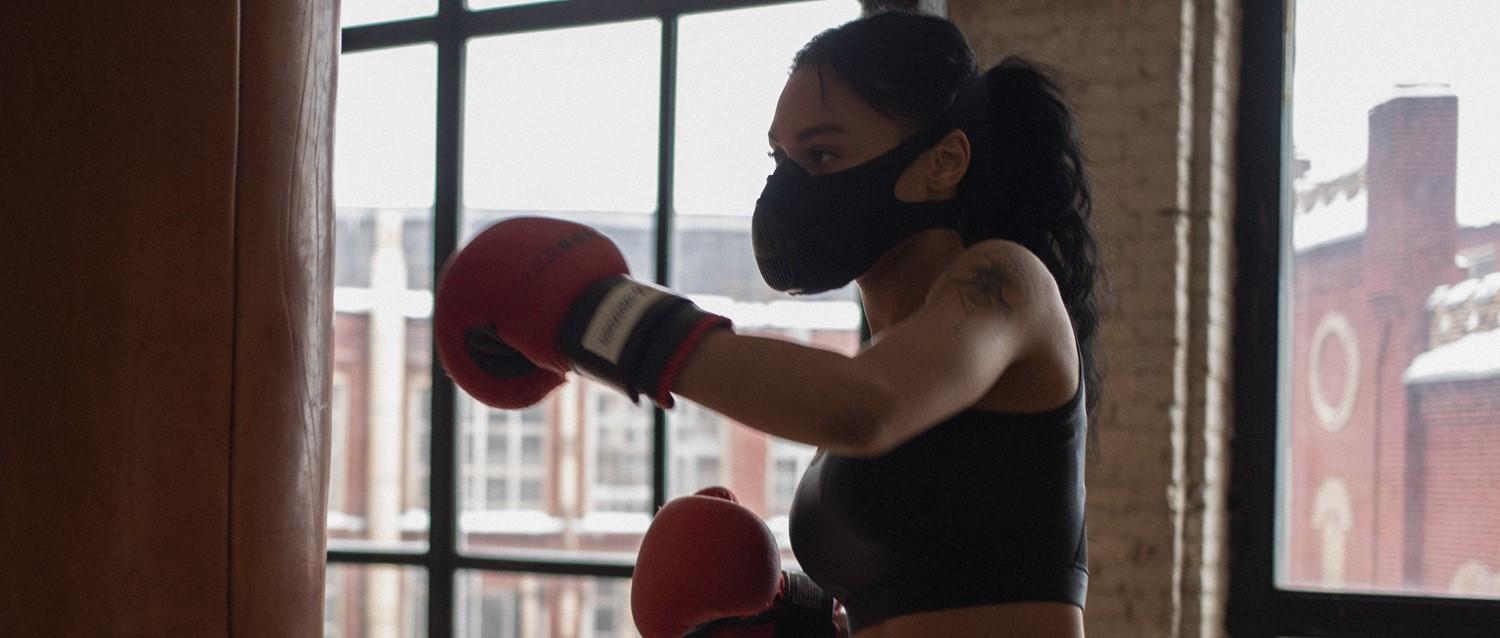
How to get over gym anxiety
Peer reviewed by Dr Sarah Jarvis MBE, FRCGPLast updated by Amberley DavisLast updated 10 Feb 2022
Meets Patient’s editorial guidelines
- DownloadDownload
- Share
- Language
- Discussion
From feeling unsure of how to operate gym machinery to fearing judgement from others, many of us experience gym anxiety. If you want to become a regular gym-goer, it's important to address these fears by retraining your mindset and taking small, achievable steps towards your fitness goals.
In this article:
If you have set yourself fitness goals only to find yourself avoiding walking through those gym doors, you're not alone. One study commissioned by fitness equipment specialists Sweatband found that 52% of those surveyed said they prefer a home workout routine.
Setting up a home gym can be a great way to stay physically fit, but this may not be an option if you don't have the space or the money to invest in a range of equipment. Most gyms offer personal trainers to provide expertise. Even if you can't afford this personal service, the majority of gyms offer classes to motivate you and a wide variety of kit to assist with everything from cardio to strength training.
Gym anxiety can stem from several different reasons: these include the fear of the unknown, feeling self-conscious in public, being intimidated by the environment, and becoming overwhelmed by your exercise goals.
All these fears can generally be overcome. This is great news for your well-being, as regular exercise can help to prevent and treat many physical and mental health conditions, from type 2 diabetes and stroke to stress and depression.
Continue reading below
Fear of the unknown
It could be that you've never seen inside a gym before, or that the machinery looks complex and alien to you. Whatever the case, trying something new when you have no prior knowledge can trigger some nerves.
Nicola Vanlint, Wellness Rooms psychotherapist and BACP (British Association of Counselling and Psychotherapy) member, has this advice: "Even though the gym can seem like a scary environment, everyone there has one shared goal - to improve their fitness. Reminding yourself of this can make it easier to step out of your comfort zone."
"Zero in on your immediate drive and don't think about the bigger picture," adds William Pullen, BACP registered psychotherapist and founder of Dynamic Running Therapy. "Focus on just getting started and keep an open mind."
Self-consciousness in public
Sadly, it appears that a lot of anxiety about going to the gym comes from feeling self-conscious about the way we look when at the gym. According to one survey by Sure Women, one quarter of women avoid the gym for fear of being judged and almost a third of women worry they look unattractive when they work out.
Pullen suggests first finding a gym that's the right fit for you. For example, you may feel more comfortable at a gym that runs classes that align with your interests, or where the age of attendees is more varied.
As you exercise, Vanlint encourages you not to think about your perceived flaws: instead, you should try to look around and notice people of all shapes and sizes. "If you then find yourself criticising others on their appearance, note that the only judgement is coming from you and not from others.
"Also, try to turn any negative thoughts into positive ones. For example, if you find yourself thinking 'I couldn't pull off that gym gear!' this could turn into 'that looks nice - I aspire to wear that one day'. It can be helpful if you actively look for an angle that's about motivation rather than criticism."
Continue reading below
Feeling like you don't belong
Gyms are spaces used and enjoyed by men and women alike. While it's archaic to think of gyms as a predominantly male environment, some still perceive a link between masculinity and gym culture.
This is particularly true when it comes to areas set aside for strength training, a form of exercise that has traditionally been dominated by men. Regardless of gender, strength training has many health benefits. However, a 2020 study reveals that a strength training gender gap still exists today.
The researchers found that women were less likely than men to use weight areas in exercise facilities. Far from this reflecting a lack of interest, this was primarily due to a lack of confidence in these areas. What's more, many were put off by unsolicited advice from male peers.
If this sounds like the reason for your gym anxiety, Vanlint has the following tips:
Think about where this perspective comes from - for example, outdated societal beliefs or the media.
Go in open-minded - tell yourself these perspectives have no bearing on your ability to learn and use certain equipment/areas.
There will be women using so-called 'masculine' equipment such as boxing bags and squat racks - notice when they do.
Don't hold back from trying these pieces of equipment/areas yourself - once you gain the required knowledge and ability they won't seem intimidating.
Overwhelmed by fitness goals
Are you one of the many people who set a New Year's resolution to become a regular gym-goer? If so, it may surprise you to learn that many psychologists consider New Year and January the worst time to make resolutions.
"This time period follows the exhausting and busy build-up to Christmas," Vanlint explains. "From an energy level perspective, we're usually running pretty low in January and should be taking it easier.
"With this in mind, if you have set fitness goals for this year then start with small 'smart goals'. These are realistic goals that don't put you under too much pressure. For example, you could try going to the gym to use the treadmill and nothing else."
Pullen agrees that you should start slowly if you believe your gym anxiety is linked to feeling overwhelmed by the prospect of physical activity. Take little steps, and "run the mile that you're in" before setting bigger goals.
No matter how short your initial gym visits are, once you make them part of your routine,you will find that the urge to procrastinate or to abandon your visits fades. Vanlint explains that creating a new habit by doing something regularly will put that behaviour into your implicit memory.
Also known as your unconscious or non-declarative memory, this is where past experiences are logged in the brain so that you find yourself doing things without thinking about them.
"For example, going to the gym on Monday, Wednesday and Friday mornings will gradually make this behaviour automatic and habitual," adds Vanlint.
Patient picks for Exercise and physical activity

Healthy living
Could cold exposure boost your health and wellbeing?
We tend to associate plunging winter temperatures with the cold and flu season. But did you know that cold showers and cold water swimming have proven benefits for health? We ask the experts about the dos and don'ts of cold exposure.
by Lynn Stephen

Healthy living
Why sitting ruins our health - and how 22 minutes of exercise could help
For many of us, a working day involves spending several hours at a time sitting in front of a computer - and it's having a serious effect on our health. But research suggests that 22 minutes of moderate to vigorous exercise per day may reduce the negative health impacts of a sedentary lifestyle.
by Victoria Raw
Article history
The information on this page is peer reviewed by qualified clinicians.
10 Feb 2022 | Latest version
10 Feb 2022 | Originally published

Ask, share, connect.
Browse discussions, ask questions, and share experiences across hundreds of health topics.

Feeling unwell?
Assess your symptoms online for free
Sign up to the Patient newsletter
Your weekly dose of clear, trustworthy health advice - written to help you feel informed, confident and in control.
By subscribing you accept our Privacy Policy. You can unsubscribe at any time. We never sell your data.